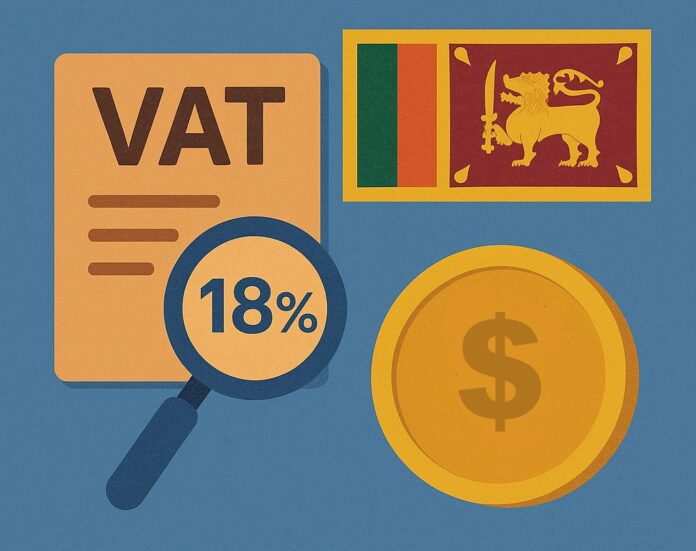Sri Lanka’s decision to impose an 18% Value-Added Tax (VAT) on global digital payment platforms like PayPal and Stripe from October has sparked growing concern among the country’s freelance and digital workforce. The move, aimed at boosting government revenue under International Monetary Fund (IMF) guidance, threatens to place new financial burdens on thousands of Sri Lankans who rely on online platforms for their livelihoods.
The new tax measure brings foreign digital service providers into the local VAT net, aligning with international frameworks like those of the Organisation for Economic Co-operation and Development (OECD). However, critics argue that the government is pushing ahead without addressing significant enforcement and implementation gaps — and at a time when the country is trying to grow its $4 billion digital economy to $15 billion by 2030.
While the Inland Revenue Department (IRD) has clarified that VAT will be charged only on the service value and not on the 2.5% stamp duty already imposed on foreign card transactions, the confusion has persisted. Freelancers and digital entrepreneurs — many of whom use platforms such as Fiverr, Upwork, PayPal, and Stripe — say they’ve received no clear guidance or communication on how the tax will be applied in practice.
Experts point out that the tax design is fundamentally flawed when it comes to gig economy transactions. For example, when a Sri Lankan hires a freelancer through Fiverr, the platform often takes a 30% cut from the freelancer’s earnings — not the client’s payment. This means the Sri Lankan user may not be the party remitting payment directly to the platform, making enforcement of VAT nearly impossible without compelling the platforms themselves to collect and remit the tax.
“In other countries, the law makes platforms like Fiverr liable for VAT collection. Sri Lanka hasn’t reached that point,” noted a senior tax advisor. “The current model assumes that non-resident freelancers earning from Sri Lankans will voluntarily register for VAT, which is practically unenforceable.”
Another challenge lies in the legal classification of digital goods and services. Under the VAT Act, tailor-made software is treated as a service and taxed accordingly, but off-the-shelf software downloaded from app stores is classified as a good — which may be outside the digital VAT scope. These ambiguities make it difficult for digital service providers and consumers to understand their obligations.
Cybersecurity expert Asela Waidyalankara warned that the tax risks undermining the country’s digital development goals. “Gig workers and freelancers form the backbone of our digital economy. This tax will directly raise their costs and limit their competitiveness globally,” he said. Most freelancers operate on fixed contracts with international clients, giving them little room to renegotiate fees mid-project to account for new taxes. “They’ll either absorb the extra cost or risk losing business,” he added.
Waidyalankara also emphasized Sri Lanka’s limited capacity to enforce cross-border tax compliance. “Large economies can demand compliance from global tech giants. Sri Lanka can’t,” he said, suggesting that the country must rethink its approach and consider practical enforcement models.
As Sri Lanka seeks to modernize its tax regime under IMF oversight, balancing revenue goals with the survival of its digital workforce remains a complex and urgent challenge.
